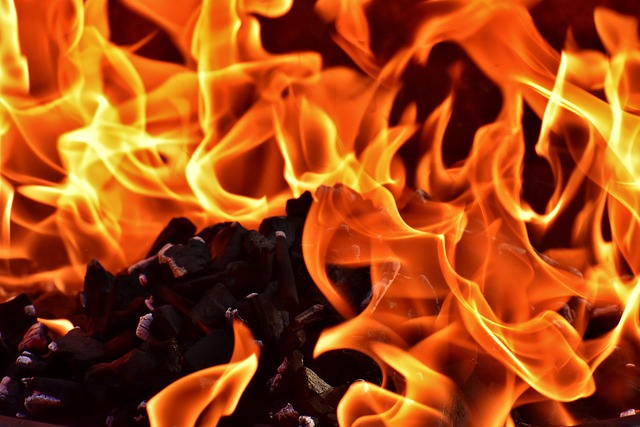Selling a fire-damaged property in California requires strict adherence to disclosure laws aimed at protecting buyers and maintaining transparency. Sellers must disclose any known defects, including fires, water damage, mold, and structural issues, using a Property Disclosure Statement provided in writing at least 3 days before sale finalization. Buyers have the right to inspect, request documentation, and take legal action if they identify undisclosed issues. Both parties must follow a meticulous legal process, ensuring open communication and compliance with California's strict disclosure laws for a successful transaction.
“Uncover the intricacies of real estate disclosure laws in California, particularly when a property has sustained fire damage. This comprehensive guide delves into the legal perspectives surrounding these regulations, clarifying seller obligations and buyer rights. From understanding post-fire conditions to navigating the selling process responsibly, we explore best practices for both parties. Whether you’re a seller looking to dispose of a fire-damaged asset in California or a buyer considering such a purchase, this article provides vital insights into the legal landscape and responsible practices.”
- Understanding California's Disclosure Laws: A Legal Perspective
- What Happens When a Property Sustains Fire Damage?
- Seller Obligations and Buyer Rights in California Real Estate Transactions
- Navigating the Process of Selling Fire-Damaged Property Legally and Responsibly
Understanding California's Disclosure Laws: A Legal Perspective

California has stringent real estate disclosure laws designed to protect buyers and ensure transparency in transactions. When it comes to selling fire-damaged properties, these laws become even more critical. According to California law, sellers must disclose any known defects or damage that could negatively impact a property’s value or safety. This includes revealing fires, water damage, mold issues, and structural problems. Failure to do so can result in legal repercussions for the seller, including potential lawsuits and financial penalties.
Real estate professionals in California are well-versed in these regulations, which require them to provide buyers with detailed information about any historical or current issues on the property. This disclosure process is a legal obligation and aims to prevent fraud and protect consumers. For those looking to sell fire-damaged homes in California, understanding and adhering to these laws is paramount to ensure a smooth transaction and avoid potential legal complications.
What Happens When a Property Sustains Fire Damage?

When a property in California sustains fire damage, several things come into play regarding real estate disclosure laws. Sellers are legally obligated to disclose any known issues that could impact a buyer’s decision to purchase a home. Fire damage falls under this category, as it can significantly affect the structural integrity and overall value of a property.
In the event of fire damage, sellers must provide detailed information about the extent of the damage, the year it occurred, and any repairs carried out since. This transparency ensures buyers make informed choices and helps them understand potential costs associated with purchasing a fire-damaged property in California. Disclosure forms are typically used to communicate these details, ensuring all relevant information is accurately passed on to prospective homebuyers.
Seller Obligations and Buyer Rights in California Real Estate Transactions

In California, real estate transactions are governed by stringent disclosure laws designed to protect buyers and ensure transparency. When selling a fire-damaged property in California, sellers have specific obligations outlined by law. They must disclose any known material defects or damage resulting from fires, including structural issues, water damage, and potential health hazards. This includes providing detailed information about the extent of the fire damage, remediation efforts made, and any ongoing repairs or assessments. Sellers are legally bound to offer this disclosure in writing, typically through a Property Disclosure Statement, at least 3 days before the sale is finalized.
Buyers, on the other hand, have the right to review this information carefully and conduct their own inspections. They can request additional documentation related to the fire damage, such as repair estimates or reports from professionals who assessed the property. If buyers identify issues not disclosed by the seller or discover that the initial disclosures were incomplete or misleading, they may have legal recourse. This includes negotiating repairs as part of the sales agreement or pursuing legal action if necessary. California’s disclosure laws aim to create a level playing field for both parties, ensuring buyers are fully informed about any potential red flags and sellers uphold their obligation to be transparent.
Navigating the Process of Selling Fire-Damaged Property Legally and Responsibly

When it comes to selling fire-damaged property in California, navigating the legal and responsible process is paramount for both sellers and buyers. The first step involves a thorough inspection of the property to assess the extent of damage and determine if it’s habitable. In California, sellers are legally obligated to disclose any known material defects, including those resulting from fires. This includes providing detailed information about the nature and scope of the damage, as well as any ongoing remediation efforts or needed repairs.
Transparency is key throughout the selling process. Sellers should obtain a comprehensive property inspection report and consult with real estate professionals experienced in handling fire-damaged properties. They must disclose these reports to potential buyers, who have the right to conduct their own inspections. This open communication ensures that both parties are fully informed, facilitating a smooth transaction while adhering to California’s strict disclosure laws for selling fire-damaged real estate.
Selling a fire-damaged property in California involves adhering to strict disclosure laws. It’s crucial for both sellers and buyers to understand their obligations and rights, ensuring a legal and responsible transaction. By navigating the process thoughtfully, you can avoid potential disputes and facilitate a smooth sale, allowing folks to move forward with their lives—a true testament to the resilience that can emerge from challenging circumstances.






